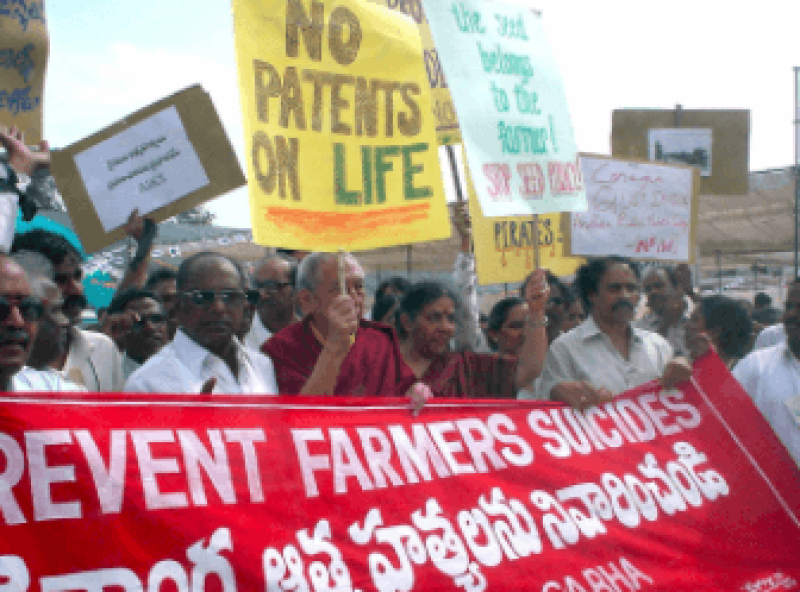As Monsanto, the Creve Coeur-based seed and pesticide giant, prepares to merge with Germany’s Bayer, observers wonder how the marriage will affect the company’s reputation in India, one of the largest markets in the world.
…
Some researchers and Monsanto critics link debt with rising farmer suicides. But on a company website, Monsanto says the issue is much more complicated, that “farming in rural India brings with it a set of systemic and social issues that can lead to hopelessness among farmers ….” The company says “significant research” has disproved the claim that genetically-modified crops are the leading cause of farmer suicide.
[Are GMOs to blame for the mass suicides of Indian farmers? Read the GLP’s coverage here.]
The government of Prime Minister Narendra Modi — and the country’s Agriculture Ministry — called for an antitrust regulation against what they consider Monsanto’s monopolistic practices.
…
But there are those who believe most farmers in India would be worse off without Monsanto’s help and that regardless of the company’s faults and reputation, India will need its technology.
Bhagirath Choudhary, founder director of the South Asia Biotechnology Centre in New Delhi, said Monsanto has helped India, giving it BT cotton technology in 2002, allowing farmers to triple their yields from 2002 to 2015. Today, India produces 39 million bales of cotton. The merger can’t be stopped, Choudhary said, so India should look for ways to benefit from its inevitability.
The GLP aggregated and excerpted this article to reflect the diversity of news, opinion and analysis. Read full, original post: Monsanto’s complicated relationship with agriculture in India































